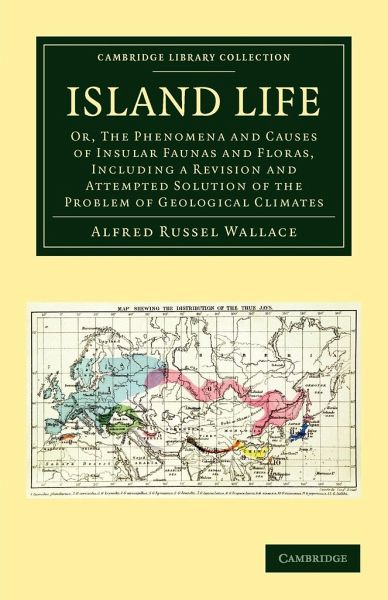
Island Life
Versandkostenfrei!
Versandfertig in 1-2 Wochen
64,99 €
inkl. MwSt.
Weitere Ausgaben:

PAYBACK Punkte
32 °P sammeln!
First published in 1880, this study of the biology and geography of islands investigates some of the most pressing questions of nineteenth-century natural science. Why do countries as far-flung as Britain and Japan share similar flora and fauna when those of neighbouring islands in Malaysia are utterly unalike? What is the origin of life in New Zealand? And why do the geological formations of Scotland and Wales appear to be the result of glaciers when those countries lie in the temperate zone? Dismissing popular theories of submerged continents and 'special creation', Alfred Russel Wallace (18...
First published in 1880, this study of the biology and geography of islands investigates some of the most pressing questions of nineteenth-century natural science. Why do countries as far-flung as Britain and Japan share similar flora and fauna when those of neighbouring islands in Malaysia are utterly unalike? What is the origin of life in New Zealand? And why do the geological formations of Scotland and Wales appear to be the result of glaciers when those countries lie in the temperate zone? Dismissing popular theories of submerged continents and 'special creation', Alfred Russel Wallace (1823-1913) presents extensive evidence of the mass migration of species, and of drastic and repeated climatic changes across the globe. Drawing on a vast range of sources and the newest ocean soundings to support his theories, Wallace wrote the text for the intelligent general reader. It remains a fascinating introduction to the subject matter today.



